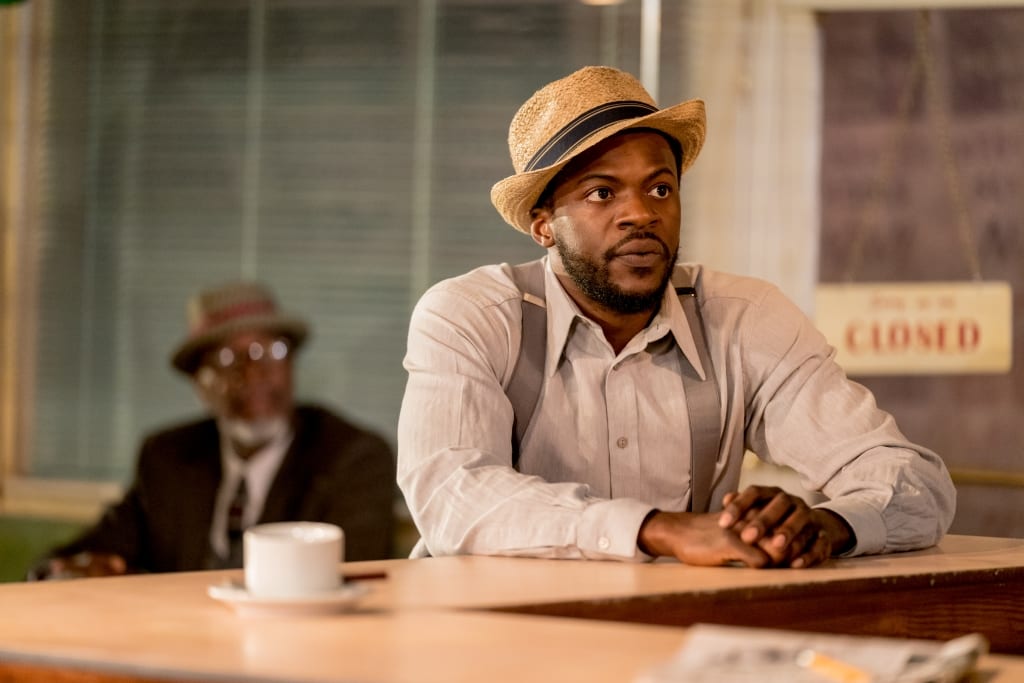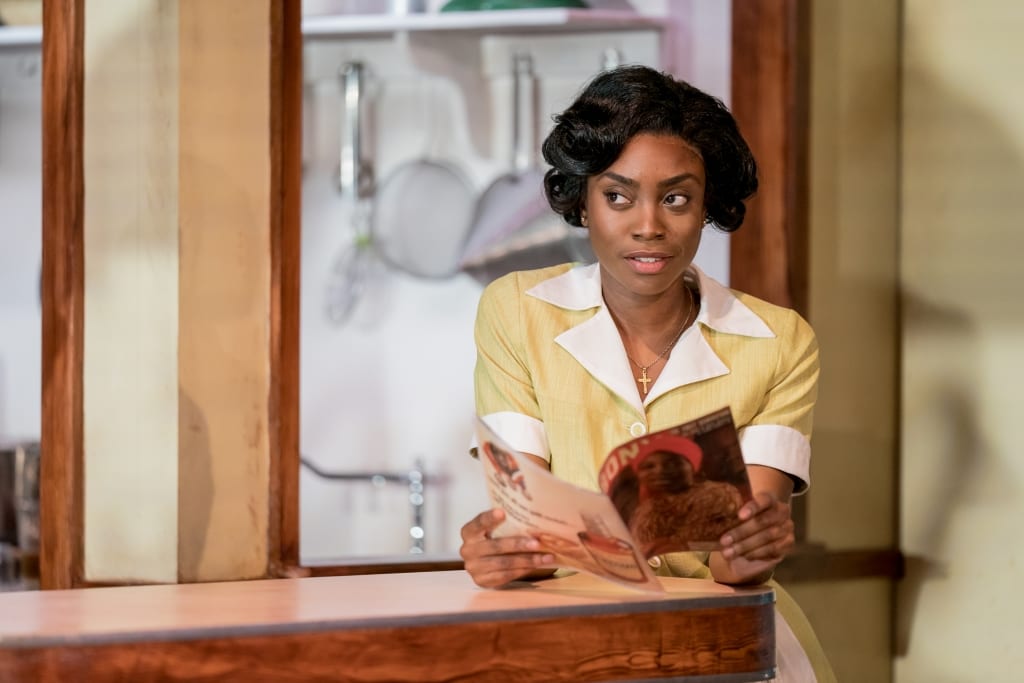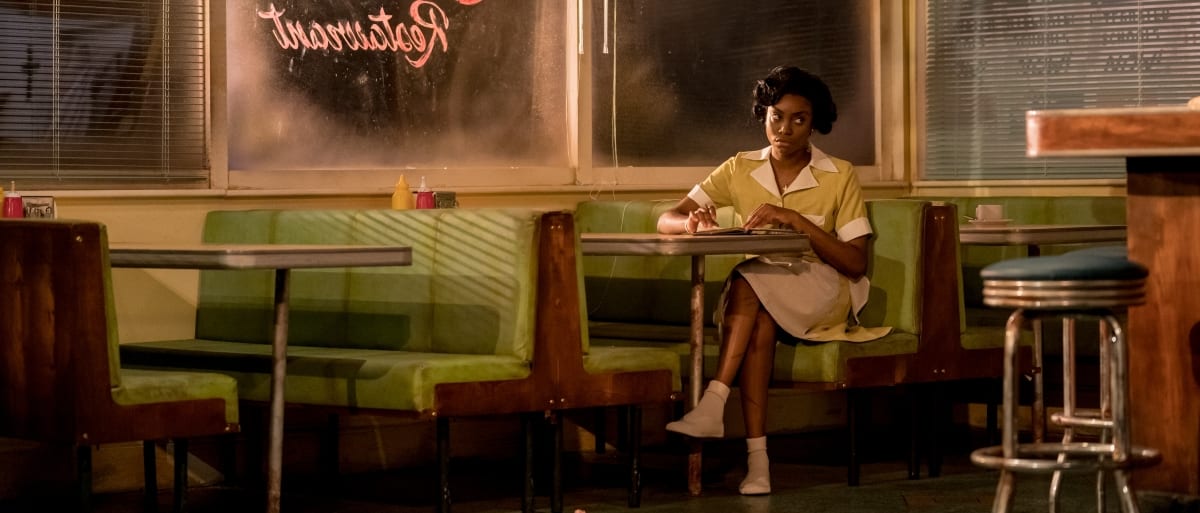I should begin by stating up front that I am a serious admirer and fan of the works of August Wilson. For me the plays he has written should be considered in the same league of American drama as Arthur Miller and even Eugene O’Neill. His ten-play sequence about black life in America, set specifically in Pittsburgh, includes Fences, which has made him more famous because of the successful film.
This is a play that play looks at and makes you think about the poverty trap of black lives, police tensions and brutality, the Civil Rights movement, racism, and gentrification.
Two Trains Running is set in the 1960s in Pittsburgh and therefore, roughly speaking, the next play in the sequence after Fences. Like the other plays it is free standing and the English Touring Theatre co-production from the Royal & Derngate, Northampton, is a strong and important. If you are new to the work of August Wilson, it is a sympathetic introduction to his work. Its characters a richly evoked and people it is a privilege to get to know. The production is worthy of the text. The background to the story that unfolds in this drama is the Civil Rights Movement and the agitations that sometimes could lead to riots. The characters are emblematic, representative of different ages and situations that pertained at the time; and yet also individuals.

We find ourselves in the café owned and run by Memphis (Andrew French) who is late middle-aged and damaged for reasons that only are clarified later. His young waitress, Risa (Anita-Joy Uwajeh), is adored by all the customers and is a sympathetic, generous spirit, though self-protective. She is especially loved by Sterling (Michael Salami), a young man who has just got out of jail after five years and is searching for a job, a meaning, a purpose. He was sent to the penitentiary for his involvement in a bank robbery. Another character, Wolf (Ray Emmet Brown, who would make a believable Sportin’ Life in Porgy and Bess), runs numbers for the mob, or tries to, from the pay phone in this greasy spoon café.
The city wants to buy the building that Memphis owns for too little money. The plan is clearly to demolish it for a project that will upgrade the neighbourhood. The customers include a mentally challenged character, Hambone (Derek Ezenagu, touching and scary at the same time), and the rich undertaker, West (Geoff Aymer). Finally there is Holloway (Leon Herbert). Through naturalistic conversation and exchanges among all the characters that seems almost casual at times, we learn as much as we need to of the stories of each one. Slowly they reveal their past traumas and tragedies throughout the long, masterfully constructed evening. Director Nancy Medina deserves total praise for her presentation of the play, though because of the faultless American accents I wanted the characters to speak a bit more slowly some of the time. Details of movement and costume set the period and bring the characters to vivid life. Designer Frankie Bradshaw has created a set that speaks to us clearly of the declining business of the diner as well as the demolition of buildings that is the fate of the neighbourhood. Everything about this production fits together as an exceptionally moving ensemble piece.

This play is in the tradition of Eugene O’Neill’s The Iceman Cometh or William Saroyan’s The Time of Your Life. At one point, Memphis talks about the two trains a day to and from his hometown. But the two trains are also the different trains of the older characters and the younger, eager ones like Sterling and Risa. The trains are running to the same destination that they all want to reach: real equality and freedom, real opportunities and resolution for these lives. There is hope and fear because of what is going on in the background.
The play ends on an upbeat moment but do not expect an ultimate, safe or final resolution at this stage. That is Wilson’s point, I believe. He portrays what is happening, what is appalling, and what is possible through the stories and lives on the stage. And the play resonates strongly today because we recognise how very much the situations we are witnessing have not really changed.

